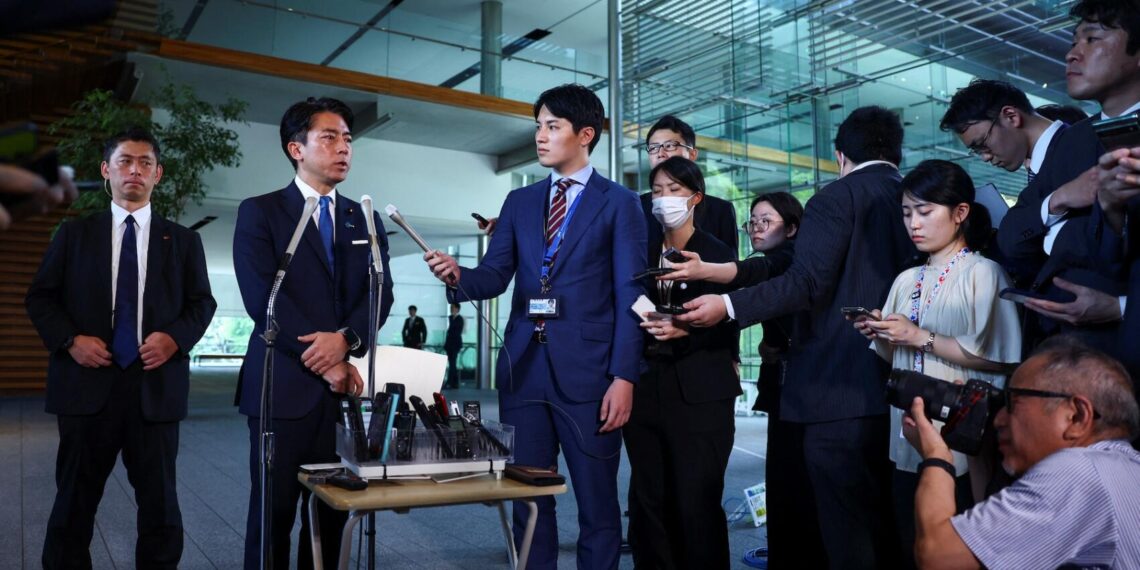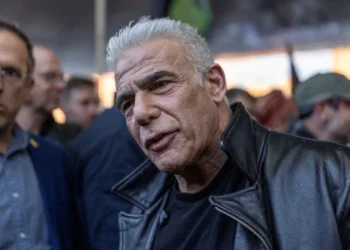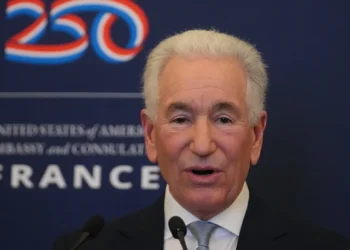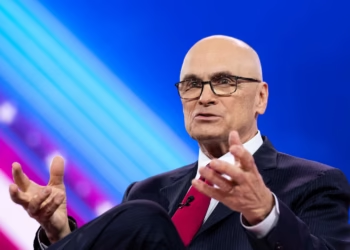TOKYO (Realist English). Japanese Agriculture Minister Taku Eto resigned on Wednesday following a public backlash over remarks that he “never had to buy rice” because he received it as a gift from supporters — a statement widely seen as tone-deaf amid soaring food prices and growing public frustration.
The resignation comes as Japan faces record-high rice prices, with government efforts to stabilize the market proving largely ineffective. Prime Minister Shigeru Ishiba immediately appointed Shinjiro Koizumi, a popular former environment minister and son of ex-premier Junichiro Koizumi, to head the agriculture ministry. Koizumi is known for his reformist credentials and prior experience in agricultural and fisheries policy.
“I was told to put rice before anything,” Koizumi told reporters shortly after his appointment. “I will do my utmost to quickly address the high rice prices that people are feeling in their daily lives.”
Koizumi added that he personally shares the concerns of families struggling with food costs, noting that he sometimes serves packaged instant rice to his children.
Eto’s controversial comment was made during a Liberal Democratic Party (LDP) seminar on Sunday, triggering outrage from the public and political opposition. The LDP, already under pressure as a minority government, now faces increased scrutiny ahead of national elections in July — where a major setback could lead to leadership changes or even force Prime Minister Ishiba to resign.
Speaking to reporters after submitting his resignation, Eto acknowledged the damage caused: “I made an extremely inappropriate remark at a time when consumers are struggling with soaring rice prices.” His resignation marks the first ministerial departure under Ishiba’s administration, which began last October.
Crisis in the rice market
Japan’s government has attempted to ease market pressures by releasing tons of rice from its emergency reserves in recent months. However, agricultural ministry data show little impact. Some supermarkets have started offering lower-priced imported rice, but this has not resolved the underlying issues.
Officials blame the current shortage on poor harvests due to extreme heat in 2023, as well as rising input costs for fertilizer and logistics. However, some agricultural experts say the crisis also reflects long-term flaws in Japan’s rice production and distribution policies, including the deregulation of rice sales since 1995, which has made tracing rice flows increasingly difficult.
“Rice is the staple food of the Japanese people. When prices rise every week, a resignation like Eto’s is only natural,” said Shizuko Oshima, a 73-year-old Tokyo resident.
A key inflection point came last August, when government warnings about earthquake preparedness triggered panic buying. Although supply pressures eased after the autumn harvest, shortages and price hikes re-emerged earlier this year, exposing deeper vulnerabilities in the country’s food supply chain.
Ishiba, himself a former agriculture minister, has vowed to overhaul Japan’s food security framework. “This is not a temporary disruption — I believe the rice price issue is structural,” he said at a press conference, while calling for increased domestic production and greater export capacity.
Still, critics argue that before pursuing reforms, the government must first urgently restore supply stability and rebuild public trust. Koizumi acknowledged that current measures have fallen short and pledged to accelerate emergency interventions once officially in office.
Parliamentary leaders are expected to question Prime Minister Ishiba over the rice crisis and the government’s response during an upcoming debate in the Diet.
A broader political risk
While Japan’s consumption of rice has declined in recent decades amid dietary diversification, the grain remains culturally central and politically sensitive. Analysts say food inflation, particularly when tied to traditional staples like rice, poses a serious risk to the government’s popularity.
The Eto resignation, though isolated in form, may be symptomatic of a deeper crisis in governance: one in which policy inertia, poor communication, and outdated supply frameworks collide with rising public expectations.
Eto’s fall underscores the political volatility of food insecurity in Japan. Rice is more than a commodity — it is a cultural anchor and a gauge of government competence. As Shinjiro Koizumi takes charge, he inherits not only a logistical challenge but also a symbolic one. If he fails to stabilize supply and restore consumer confidence, the repercussions could reach far beyond the Ministry of Agriculture — threatening the cohesion of Ishiba’s administration and the credibility of the LDP itself.


















